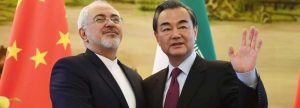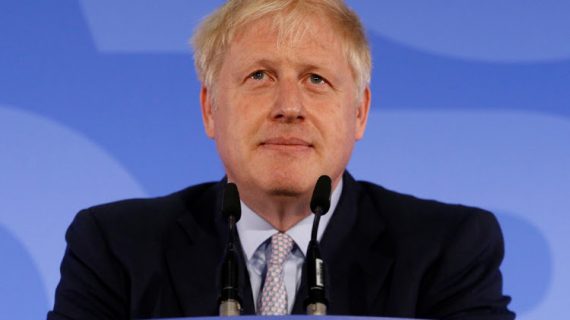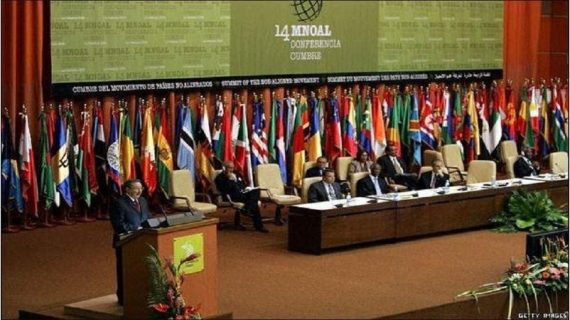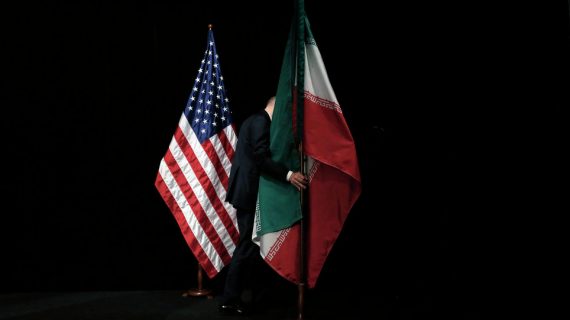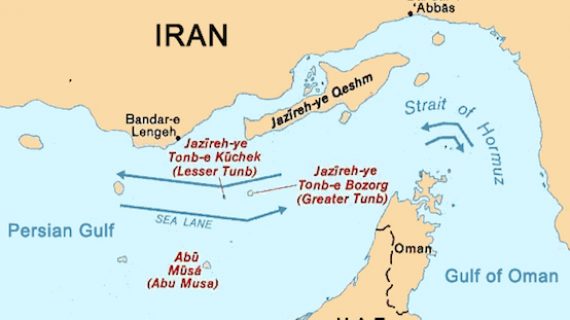China to Be Major Beneficiary of US’ Iran Nuclear Deal Pullout
Reported by HPMM Group according to FINANCIAL TRIBUNE ; The decision of US President Donald Trump’s administration to unilaterally withdraw from the Iran nuclear deal is leading to speculation about how much China will be willing to stick out its neck to fill the gap amid the possible closing off of Iran’s economy to the West.
The National Iranian Oil Company, for example, suggested that China National Petroleum Corporation would take over French firm Total’s share of a $5 billion deal to develop the massive South Pars Gas Field.
Reuters quoted industry sources as saying on Friday that China’s state-owned energy major CNPC is ready to take over Total’s stake in the giant Iranian South Pars gas project, if the French company leaves amid newly-announced US sanctions.
Some worry that any defiance of US sanctions will only hurt Chinese firms, Asia Times reported.
“Trump’s move will undoubtedly push Iran closer to China and Russia in the political sphere, but in practical terms this won’t do China any good,” Li Weijian, a Middle East expert at the Shanghai Institute of International Studies was quoted as saying by South China Morning Post.
Li cited the recent high-profile case of Chinese tech firm ZTE, which has been subjected to a crippling ban on purchases of US-made components for violation of Iran sanctions.
Others say that, with Iran’s door closed to the West, China is ultimately the winner, per Bloomberg:
“[Iran’s] trade with China has more than doubled since 2006 to $28 billion. The biggest chunk of Iran’s oil exports go to China, about $11 billion a year at current prices.
Already the Winner
“China is ‘already the winner’,” said Dina Esfandiary, a fellow at the Center for Science and Security Studies at King’s College in London, and co-author of the forthcoming ‘“riple Axis: Iran’s Relations With Russia and China”.
“Iran has slowly abandoned the idea of being open to the West,” she said. “The Chinese have been in Iran for the past 30 years. They have the contacts, the guys on the ground, the links to the local banks. And they’re more willing to defy US pressure as Trump slaps sanctions back on.”
Despite China’s strong ties with Iran, ramifications of Trump’s decision will have a wide-ranging impact and will force China to diversify trading partners.
“Russia is an appropriate option,” China’s Global Times suggested.
“Since the US imposed economic sanctions against Russian companies and business elites, Russia has begun to pivot to the East. China has certainly been at the center of Russia’s efforts to increase its presence in Asia’s crude oil market.
“A second China-Russia oil pipeline began operation in January, doubling China’s annual imports of Russian crude oil to 30 million tons through pipelines.”
Major Trade Partners
Business Insider wrote in an article published on Thursday that Trump’s decision to pull the US out of the Iran nuclear deal may have given Beijing a major boost.
“The Chinese haven’t wanted to leave a big footprint in the [nuclear] deal diplomatically and instead have preferred to focus much more on trade, which long-term has given them more leverage and influence,” Vatanka said.
But China is Iran’s largest trade partner and accounts for 22.3% of Iran’s total trade. China’s Belt and Road Initiative has significantly expanded trade opportunities between the two countries and China has pumped billions into Iran’s economy.
With such an important trade relationship, China will likely be the natural choice to lead future negotiations with Iran, giving Beijing even more diplomatic power in the Middle East.
Experience in Circumventing Sanctions
The Chinese experience in circumventing the earlier sanctions against Iran will come in handy with Beijing rejecting Trump’s renewed effort to reintroduce punitive economic measures, wrote The Globalist.
Chinese businessman Sheng Kuan Li didn’t worry about sanctions when he decided in 2010 to invest $200 million in a steel mill in Iran.
It started producing ingots and billet within months of the lifting of sanctions against the Islamic Republic as part of the 2015 international nuclear agreement with Iran.
With no operations in the United States, Li was not concerned about being targeted by the US Treasury Department. Li, moreover, circumvented financial restrictions on Iran by funding his investment through what he called a “private transfer”, a money swap that was based on trust and avoided regular banking channels.
In doing so, Li was following standard Chinese practice of evading the sanctions regime by using alternative routes or establishing alternative institutions that were in effect immune.
To be able to continue to purchase Iranian oil while sanctions were in place, China, for example, established the Bank of Kunlun to handle Chinese payments.
Chinese Foreign Ministry Spokesman Geng Shuang said in response to Trump’s announcement that China was committed to the deal and would “maintain communication with all parties and continue to protect and execute the agreement fully”.
China’s likely willingness to circumvent US sanctions is one factor that will influence Iran’s decision on whether it will stick to the agreement. Iran’s decision depends on the readiness and ability of the other signatories—Britain, France, Germany and Russia—to also stand up to the United States.
China’s experience in circumventing sanctions could come in handy, as Europe has also rejected Trump’s move and vowed to ignore the sanctions like China.
Europe is weighing ways of putting its money where its mouth is by attempting to shield European companies from potential US punitive action. One possibility would be to use alternative Chinese financial networks.
Leveraging its experience, an effort by China together with Russia and Europe that keeps the Iranian nuclear deal in place and thwarts US sanctions would deliver one of the heaviest body blows to US credibility and perceptions of US power since Trump came to office in January of last year.
A Middle Eastern diplomat said: “A successful countering of US sanctions would demonstrate beyond doubt limits to America’s ability to impose its will. That would have wide-reaching consequences, not in the least question marks in Saudi Arabia and Israel on the degree to which they can risk continuing putting most of their eggs in Washington’s basket.”

